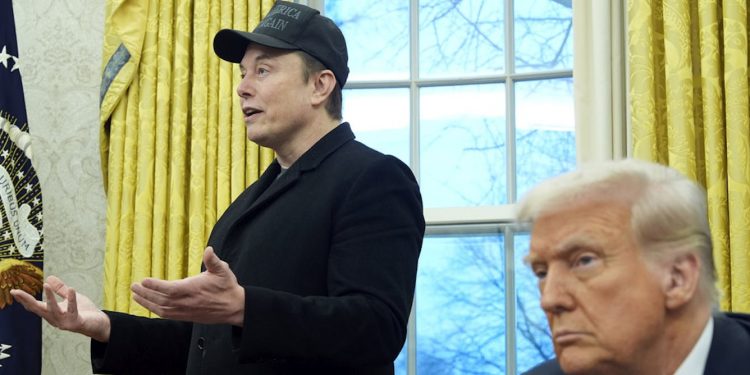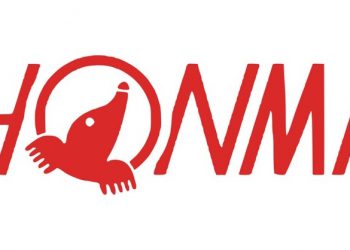Since returning to office, President Donald Trump has aggressively moved to shrink the federal government. His administration has frozen federal grants, issued executive orders aligned with the Heritage Foundation’s Project 2025, and, most prominently, created what he calls the Department of Government Efficiency, or DOGE.
DOGE has been billed as a cost-cutting initiative, although the actual amount of money being saved remains unclear. To lead DOGE, Trump appointed Elon Musk, a megadonor whose companies hold federal contracts worth billions. Musk has already moved forward with major cuts, including sweeping workforce reductions, the curtailment of government operations and purges of entire agencies. Thousands of federal workers have lost their jobs.
While certainly dramatic, these actions reflect a longer trend of privatizing government. Indeed, my sociological research shows that the government has steadily withdrawn from economic production for decades, outsourcing many responsibilities to the private sector.
3 indicators of privatization
At first glance, total government spending appears stable over time. In 2024, federal, state and local expenditures made up 35% of the U.S. economy, the same as in 1982. However, my analysis of Bureau of Economic Analysis data offers a new perspective, recasting privatization as a macroeconomic phenomenon. I find that U.S. economic activity has become increasingly more privatized over the past 50 years. This shift happened in three key ways.
First, government involvement in economic production has declined. Historically, public institutions have played a major role in sectors such as electric power, water delivery, waste management, space equipment, naval shipbuilding, construction, and infrastructure investments. In 1970, government spending on production accounted for 23% of the economy. By 2024, that figure had fallen to 17%, leaving the private sector to fill the gaps. This means a growing share of overall government spending has been used to fund the private sector economy.
Second, government’s overall ability to produce goods and services – what economists call “productive capacity” – has fallen relative to the private sector, both in terms of labor and capital. Since 1970, public employment has lagged behind private sector job growth, and government-owned capital assets have trailed those of the private sector. Although public sector capital investments briefly rebounded in the 2000s, employment did not, signaling a shift toward outsourcing rather than direct hiring. This has significant implications for wages, working conditions and unionization.
Third, and relatedly, government increasingly contracts work to private companies, opting to buy goods and services instead of making them. In 1977, private contractors accounted for one-third of government production costs. By 2023, that had risen to over half. Government contracting – now 7% of the total economy – reached US$1.98 trillion in 2023. Key beneficiaries in 2023 included professional services at $317 billion, petroleum and coal industries at $194 billion and construction at $130 billion. Other examples include private charter schools, private prisons, hospitals and defense contractors.
The meaning of privatization
Privatization can be understood as two interconnected processes: the retreat of government from economic production, and the rise of contracting. The government remains a major economic actor in the U.S., although now as more of a procurer of goods and services than a provider or employer.
The government’s shift away from production largely stems from mainstreamed austerity politics – a “starve the beast” approach to government – and backlash against the New Deal’s expansion of federal economic involvement. In 1971, the controversial “Powell Memo,” written by future Supreme Court Justice Lewis Powell, mobilized business leaders around the goal of expanding private sector power over public policy. This fueled the rise of conservative think tanks, including the Heritage Foundation, the eventual architect of the Project 2025 privatization agenda.
While government production shrank, government contracting expanded on promises of cost savings and efficiency. These contracting decisions are usually made by local administrators managing budgets under fiscal stress and interest group pressure, including from businesses and public sector unions.
Yet research shows that contracting frequently fails to reduce costs, while risking monopolies, weakening accountability and public input, and sometimes locking governments into rigid contracts. In many cases, ineffective outsourcing forces a return to public employment.
The consequences of privatization
Trump’s latest moves can be viewed as a massive acceleration of a decades-long trend, rather than a break from the past. The 50-year shift away from robust public sector employment has already privatized a lot of U.S. employment. Trump and Musk’s plan to cut the federal workforce follows the same blueprint.
This could have major consequences.
First, drastic job cuts likely mean more privatization and fewer government workers. Trump’s federal workforce cuts echo President Ronald Reagan’s 1981 mass firing of more than 11,000 air traffic controllers, a source of prolonged financial struggles and family instability for many fired workers. Trump’s firings and layoffs are already reaching far beyond Reagan’s.
In addition, since federal spending directly contributes to gross domestic product, cuts of this magnitude risk slowing the economy. The Trump administration has even floated the idea of changing GDP calculations, potentially masking any reality of economic decline.
Rapid privatization is also likely to trigger significant economic disruptions, especially in industries that depend on federal support. For example, USAID cuts have already sent shock waves through the private sector agricultural economy.
Finally, the privatization trend risks eroding democratic accountability and worsening racial and gender inequalities. That’s because, as my prior research finds, public sector unions uniquely shape American society by equalizing wages while increasing transparency and civic participation. Given that the public sector is highly unionized and disproportionately provides employment opportunities for women and Black workers, privatization risks undoing these gains.
As Trump’s administration aggressively restructures federal agencies, these changes will likely proceed without public input, further entrenching private sector dominance. This stands to undermine government functioning and democratic accountability. While often framed as inevitable, the American public should know that privatization remains a policy choice – one that can be reversed.
![]()
Nathan Meyers does not work for, consult, own shares in or receive funding from any company or organization that would benefit from this article, and has disclosed no relevant affiliations beyond their academic appointment.













